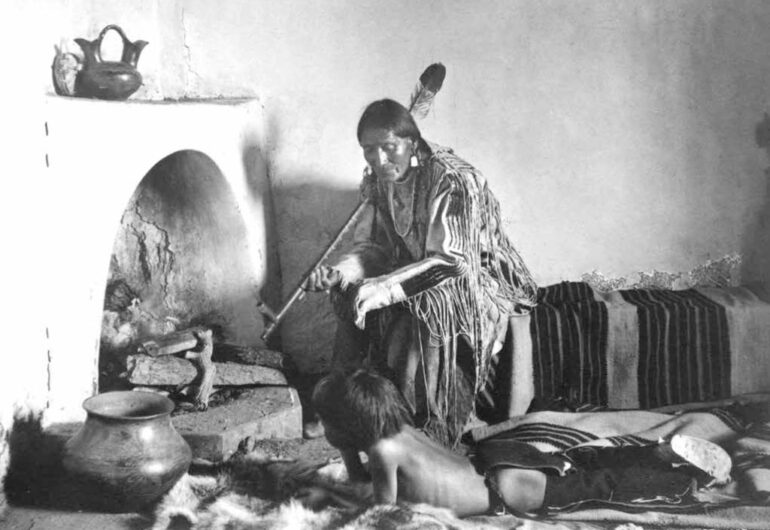
Native smokes, also known as traditional smokes or sacred herbs, hold a deep-rooted significance in various Indigenous cultures around the world. These ancient practices have been passed down through generations, offering not only a sensory experience but also a glimpse into the rich traditions and spirituality of Indigenous communities. In this article, we will delve into the secrets of Native smokes, exploring their cultural importance, health benefits, social implications, and the challenges faced by Indigenous communities in preserving their heritage.
Introduction
Indigenous traditions and practices are often shrouded in mystery, and Native smokes are no exception. These smokes have been used for centuries in rituals, ceremonies, healing practices, and everyday life, serving as a bridge between the physical and spiritual realms. By unlocking the secrets of Native smokes, we can gain a deeper understanding of the worldviews and cultural nuances that have shaped Indigenous communities throughout history.
Understanding Native Smokes
Native smokes encompass a diverse range of botanical materials, including herbs, barks, resins, and leaves, carefully selected for their medicinal, aromatic, and spiritual properties. These smokes are typically prepared by drying and burning the chosen ingredients, releasing a fragrant smoke that is believed to carry prayers and intentions to the spirit world. Each Indigenous culture has its unique blend of herbs, reflecting their connection to the land, ancestral knowledge, and cosmology.
The art of preparing and using Native smokes is often passed down through oral traditions, with elders and knowledge keepers guiding younger generations in the proper techniques and rituals. The selection of herbs and the specific protocols for smudging ceremonies vary among Indigenous cultures, but the underlying principle remains the same: to establish a connection with the spiritual realm and seek balance and harmony in the physical world.
Native Smokes Around the World
Native smokes are not limited to a single region or tradition. They can be found in various Indigenous cultures worldwide, each with its own distinct practices and ingredients. For example, in North America, smudging with white sage is prevalent among Native American tribes, while copal resin holds significance in Mesoamerican cultures. In Australia, the Aboriginal people use eucalyptus leaves for smoking ceremonies, and palo santo is revered in South American cultures. The diversity of Native smokes offers a fascinating glimpse into the relationship between Indigenous communities and their environments.
In addition to the geographical variations, Native smokes also differ in their purpose and symbolism. Some smokes are used for purification and cleansing, while others are employed for healing, protection, or to mark significant life events. The rituals surrounding Native smokes often involve prayers, chants, and the intentional movement of smoke to specific areas or individuals. Through these practices, Indigenous communities maintain a profound connection with their cultural heritage and the natural world.

Health Benefits and Risks
Beyond their cultural and spiritual significance, Native smokes are also associated with various health benefits. Traditional beliefs suggest that these smokes possess cleansing, purifying, and healing properties, both for the body and the environment. Scientific research has begun to explore these claims, with studies highlighting the antimicrobial, anti-inflammatory, and stress-relieving properties of certain herbs used in Native smokes.
For example, white sage, commonly used in smudging rituals, has been found to contain compounds with antimicrobial properties, which can help cleanse the air by reducing bacteria and pathogens. Sweetgrass, another commonly used herb, emits a pleasant aroma that is believed to have a calming effect on the mind and spirit. These aromatic properties are also known to promote relaxation and stress reduction.
However, it is important to note that the inhalation of smoke, regardless of its origin, carries inherent risks. The combustion process releases airborne particles and chemical compounds that can irritate the respiratory system, particularly for individuals with pre-existing conditions such as asthma or allergies. It is crucial to practice proper ventilation and moderation when using Native smokes to minimize potential health risks.
Native Smokes in Indigenous Communities
For Indigenous communities, Native smokes are more than just aromatic blends; they are an integral part of their cultural identity and daily practices. These smokes play a vital role in ceremonies, rites of passage, and spiritual rituals, acting as a conduit for communication with ancestors, spirits, and the natural world. By understanding and respecting the significance of Native smokes in these contexts, we can appreciate the depth of Indigenous wisdom and foster cultural understanding.
Rituals involving Native smokes often serve as communal gatherings, fostering a sense of unity and connection within Indigenous communities. Smudging ceremonies, for example, may be conducted to cleanse and protect individuals, spaces, or objects, promoting spiritual well-being and harmony. These practices allow for reflection, gratitude, and the acknowledgment of one’s place within the larger tapestry of life.
Moreover, Native smokes are intertwined with the social fabric of Indigenous communities, with elders and spiritual leaders acting as guardians of the traditional knowledge and practices. The transmission of this knowledge ensures the continuity of cultural heritage and strengthens the bond between generations. The role of Native smokes in Indigenous communities extends far beyond the physical act of burning herbs; it represents a profound connection to the past, present, and future.

Commercialization and Cultural Appropriation
The commercialization of Native smokes poses significant challenges for Indigenous communities. As these practices gain popularity in mainstream culture, there is a risk of cultural appropriation, where the spiritual and cultural significance of Native smokes is diluted or exploited for profit. Indigenous communities face the ongoing struggle of protecting their traditional knowledge and maintaining control over the commercialization and use of Native smokes.
Cultural appropriation occurs when elements of a culture, such as rituals, symbols, or practices, are adopted by individuals or organizations from outside that culture without proper understanding, respect, or acknowledgement of their origins. This appropriation often disregards the historical, social, and spiritual contexts from which the practices emerged, resulting in the commodification and misrepresentation of Indigenous cultures.
Indigenous communities strive to preserve their cultural heritage while also sharing aspects of their traditions with the wider world. However, this sharing must occur on equitable terms, with Indigenous voices and perspectives at the forefront. By respecting the cultural protocols, seeking permission, and supporting Indigenous-owned businesses and initiatives, we can contribute to the preservation and revitalization of Native smokes in a manner that benefits Indigenous communities.
Responsible Consumption and Appreciation
To engage with Native smokes responsibly, it is essential to approach them with respect, cultural sensitivity, and awareness of their sacred nature. Seeking guidance from Indigenous elders, knowledge keepers, and local communities is crucial to understanding the proper protocols and significance of these practices. Indigenous cultures are diverse and nuanced, and each community may have its unique perspectives and teachings regarding Native smokes.
When purchasing Native smokes or related products, it is important to support Indigenous-owned businesses and artisans directly. This ensures that the economic benefits flow back to the communities who have safeguarded these traditions for generations. By doing so, we contribute to the preservation of Indigenous cultures and empower Indigenous peoples to continue practicing and sharing their wisdom with the world.
Furthermore, responsible consumption involves an ongoing commitment to education and self-reflection. It requires us to question our own assumptions, biases, and privileges, as well as to challenge the narratives and stereotypes perpetuated by mainstream media and popular culture. By actively engaging in conversations, attending cultural events, and learning from Indigenous perspectives, we can foster a more inclusive and respectful society.
Conclusion
Unlocking the secrets of Native smokes offers us a unique opportunity to explore the beauty and depth of Indigenous traditions. By appreciating the cultural significance, health benefits, and challenges faced by Indigenous communities, we can foster cultural respect, support, and understanding. Let us embark on this journey of discovery and pay homage to the wisdom of the Indigenous peoples who have preserved these ancient traditions for centuries.
In conclusion, Native smokes provide a gateway to the sacred traditions and spiritual practices of Indigenous cultures worldwide. They hold immense cultural, historical, and medicinal value, serving as a means to connect with the spiritual realm and seek balance in the physical world. By approaching Native smokes with respect, cultural sensitivity, and responsible consumption, we can honor and preserve Indigenous traditions while supporting the well-being and empowerment of Indigenous communities.





ckw80
GREAT PRODUCTS ,GREAT PRICE
CONVINNET,
FAST SHIPPING. TRUSTWORTHY..
NEVER GOING ANYWHERE ELSE!!
THANK YOU!